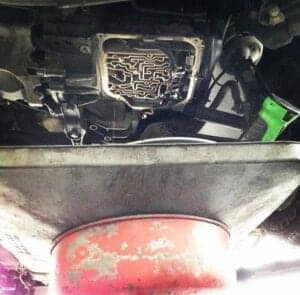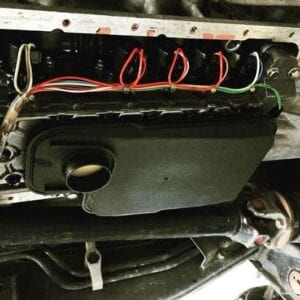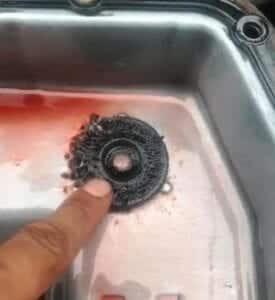
Trying to figure out when to change/service your transmission? Your vehicle has numerous types of fluid running throughout your vehicle like blood through veins, but one of the most important hands down is transmission fluid.
Should it be changed or not, is it worth it, maybe or maybe not? Through much debate: Absolutely, yes, you should! Be that as it may, how often this crucial service ought to be performed varies by the make, model and transmission. In the transmission service industry this service is one of the most debated & discussed.
When Should I change My Transmission Fluid?
When it comes to changing automatic transmission fluid these days (2020) most manufacturer’s maintenance schedules call for fresh transmission fluid around 60,000-100,000 miles or so. Where some others say 150,000 miles and then some even claim (say) the transmission fluid lasts a lifetime. Wouldn’t that be great if your vehicle’s fluids lasted a lifetime and you never even had to worry. If that was the case we wouldn’t be here writing this article.
Just like all other vehicle fluids, transmission fluid deteriorates over time. But all fluids eventually deteriorate it’s just a matter of when and keeping up on the preventative maintenance aspect to make sure a simple service being overlooked doesn’t turn into a costly with downtime included major service. Lets talk about some of the determining factors behind when to change your transmission fluid.
How do you drive your vehicle, like you still have payments left, like you own it or stole it? Does your vehicle work hard? As in “hard use” – such as a lot of stop-and-go driving, towing boats, equipment or toys with trailers. This will put the need for transmission service in a different category hence it will move it from normal service to severe service, which means you need to service it sooner than normal.
Pushing the vehicle harder raises the transmission operating temperature, and heat puts more strain on the transmission and the fluid. Engine oil and transmission fluid are two different animals. Engine oil primarily acts as a lubricant, transmission fluid on the other hand serves as both a lubricant oil and a hydraulic fluid that is crucial to facilitate gear shifting, cooling the transmission and lubricating all the moving parts.
When Should I Check My Transmission Fluid?
If you do a lot of driving under high-stress conditions, you should check the transmission level more often and have a repair shop check the condition of the fluid. Transmission fluid often is red but can come in other colors, and as it deteriorates it tends to turn darker. It may also acquire a burned odor that could indicate it needs to be changed or that the transmission is developing mechanical problems.
If your vehicle deals with a lot high-stress aka harder driving conditions, you should have a local transmission shop check the transmission fluid level all the more regularly to make sure that your transmission stays healthy. Transmission fluid is typically red, in some cases it is different colors, but regardless as it deteriorates it will generally turn a darker color. It typically will also gain a burned scent that means it either should be changed and or worse case scenario you waited way to long to check your trans fluid and now there may be a mechanical issue brewing. When this occurs it’s time for a transmission shop near me.
Another tell tale sign that your transmission fluid needs to be changed is if there is debris and or particles floating around in the fluid. When you bring your vehicle in for routine service or an oil change, the repair shop (if they service transmissions) can take a closer look at your transmission fluid, your maintenance schedule and your service records to determine what needs to be done if anything.
A lot of auto repair shops these days try to push the transmission flush service. This service forces the old fluid out and then pumps the new fluid in rather than offering you the drain & fill service that includes, in a lot of cases a new transmission filter, cleaning the magnets and inside of the trans pan. Which one is better?
With a transmission flush service the trans pan never comes off, the transmission filter typically isn’t changed (if applicable), you don’t see what is on the magnets inside of the pan nor does it clean the debris & metal shavings that may be present. Some vehicle manufacturers (like Honda & Acura for instance) say not to flush your trans.
You need to know what your vehicle’s manufacture recommends to make sure what is needed and when it’s needed. Either by checking your maintenance schedule, doing your homework online and or bringing it a local transmission expert.
Automatic transmissions these days call for a specific type of automatic trans fluid. Using the wrong fluid could cause damage and cost you a lot more than it would of cost you if you were to have brought it to a transmission expert. A lot of shops and oil change stations that don’t specialize on transmissions will be quick to offer a costly, easy money, transmission flush service. You don’t want to find out the hard way that not every shop specializes on transmissions.
Should I Still Service My Transmission?
Have you never serviced your transmission and have 100,000 miles or more? In this case to play it safe you should bring your vehicle to a transmission shop near you you that knows transmissions. Unless your a gambler and don’t mind taking risks that is. We’ve learned a lot through the many decades of serving transmissions. We have also seen different outcomes due to different situations & circumstances. Our knowledge gives us the ability to not have to gamble with other peoples money. Right or wrong we make sure to point the customer in the right direction.
We’ve seen transmissions with high miles fail after having a fluid service and we’ve seen others operate like a champ. It’s all about the pre-inspection before the service & the problems at hand. If the the transmission is having problems and the fluid is dark with stuff floating around in it, fresh fluid in most cases is not the magical cure for gears slipping, rough shifting or other mechanical problems.




